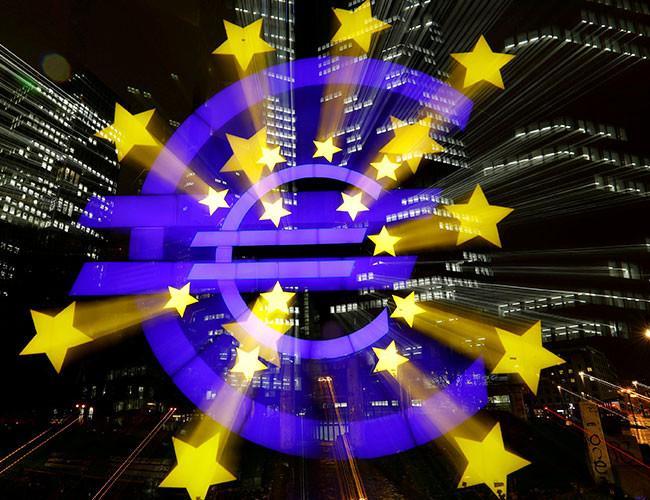ECB split over keeping bond buys open-ended: Minutes
FRANKFURT/WASHINGTON - Reuters

European Central Bank policymakers broadly agreed last month on extending their asset purchase scheme but a decision to keep the bond buys open-ended appeared to generate fiercer debate, minutes of the meeting released on Nov. 23 showed.
Having to reconcile rapid economic growth with anemic inflation, the ECB opted last month to halve its asset purchases while extending them by nine months, hoping that gentler though longer stimulus would still keep growth strong enough to generate inflation.
But minutes of the debate at the Oct. 26 policy meeting suggest policymakers were far from unanimous, with some keen to signal a clear end to the ECB’s lavish asset purchases and others arguing for a change in emphasis as a precursor to their eventual end.
The euro zone’s central bank already has over 2.2 trillion euros worth of assets on its balance sheet.
While the nine-month extension of the scheme at 30 billion euros per month enjoyed broad support, policymakers discussed a range of alternatives, debated an eventual change in the bank’s guidance, and agreed that other components of central bank stimulus should also be highlighted, the minutes showed.
“An end date was viewed (by a few) to be well justified in anticipation of further progress towards a sustained adjustment in the path of inflation on the basis of the better than expected growth momentum, diminishing risks and continued favorable financing conditions for the real economy,” the minutes said.
“Some concerns were also expressed that the open-ended nature of the asset purchase program might generate expectations of further extensions.”
The dissenters argued that even if markets did not anticipate a clear end date, the reaction would be limited and in any case, the economy was able to handle tighter financing conditions given the solid growth path.
In a further sign of diverging views, some policymakers argued that the ECB should stop linking its asset buys to the path of inflation and should instead reference to its overall monetary policy stance.
Sources have previously told Reuters that policymakers were in general agreement that barring shocks, the asset buys would end next year.
In a possible preparation for this end, policymakers expressed a desire to highlight other parts of ECB support, particularly a sizable balance sheet, low rates and a promise to keep rates low for an extended period, the minutes showed.
The debate highlights the split in the Governing Council and suggests that any further extension of the asset purchase scheme would run into opposition, even if inflation will miss the ECB’s target of almost 2 percent for years to come.
The ECB’s problem is that while the euro zone economy has expanded for 18 consecutive quarters, its best run in a decade, inflation has undershot the bank’s target for five years, threatening the ECB’s credibility since inflation is its primary mandate.
But much of the bank’s policy firepower is already exhausted after 2.2 trillion euros worth of bond buys so the ECB is under pressure to shift to lighter but more protracted stimulus, giving itself even more time to raise inflation.
Its biggest puzzle is that while unemployment is falling quickly, wages are not responding, throwing into doubt a long-standing relationship between the two indicators. Other regions, including the United States, are facing a similar dilemma.
Dollar sinks after Fed minutes announced
Meanwhile, the dollar was on the defensive on Nov. 23 after suffering its worst drubbing in five months while bonds celebrated a comeback on speculation the Federal Reserve might not tighten U.S. policy as aggressively as previously thought.
The dollar’s rout came after minutes of the Fed’s last meeting showed “many participants” were concerned inflation would stay below the bank’s 2 percent target for longer than expected.
That echoed comments from Fed Chair Janet Yellen that she was uncertain about the outlook for inflation and led markets to pare back pricing for more hikes next year.
While a move in December to between 1.25 and 1.5 percent is still almost fully priced in, Fedfund futures rallied to show rates at just 1.75 percent by the end of next year.
















